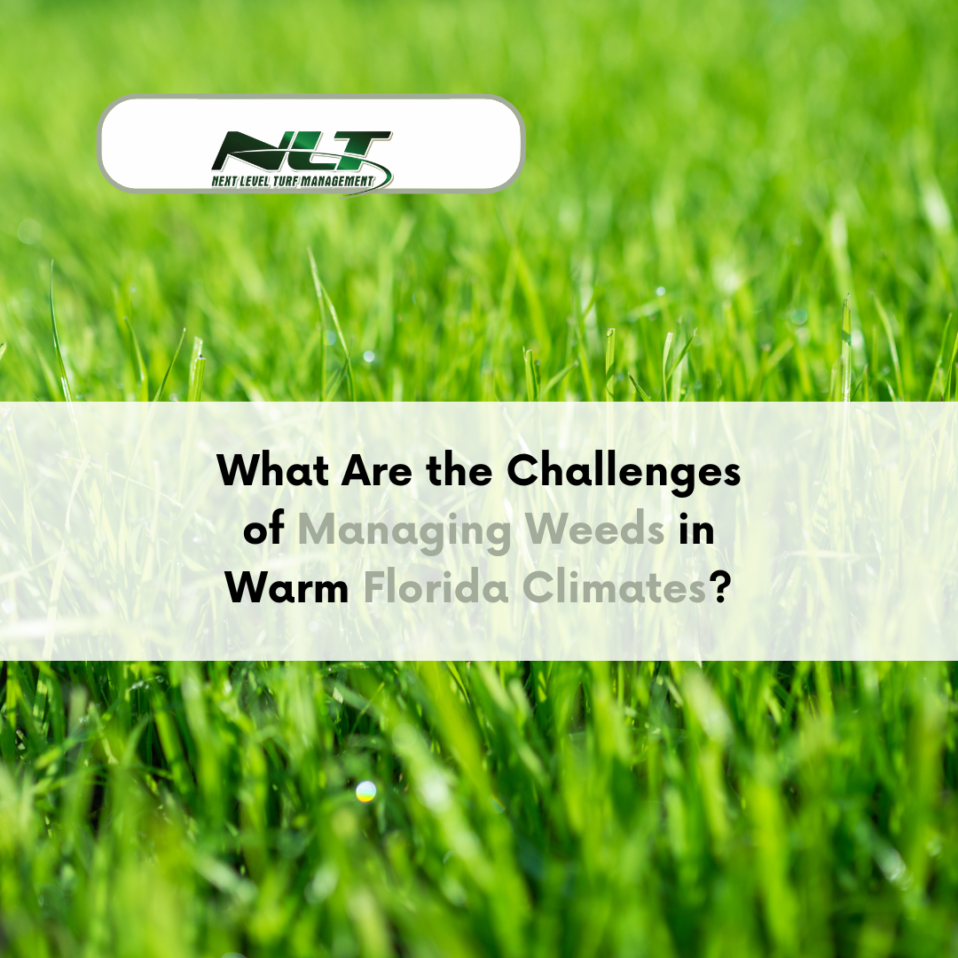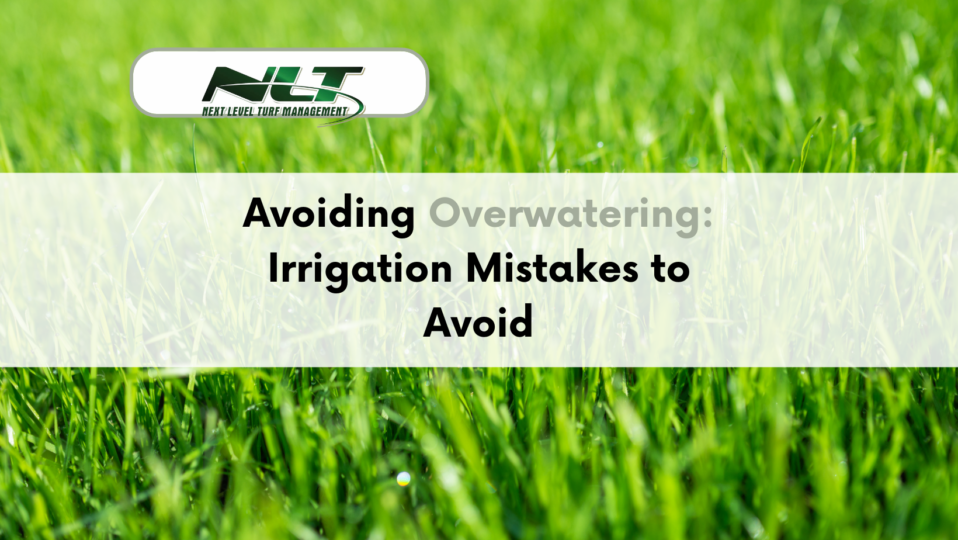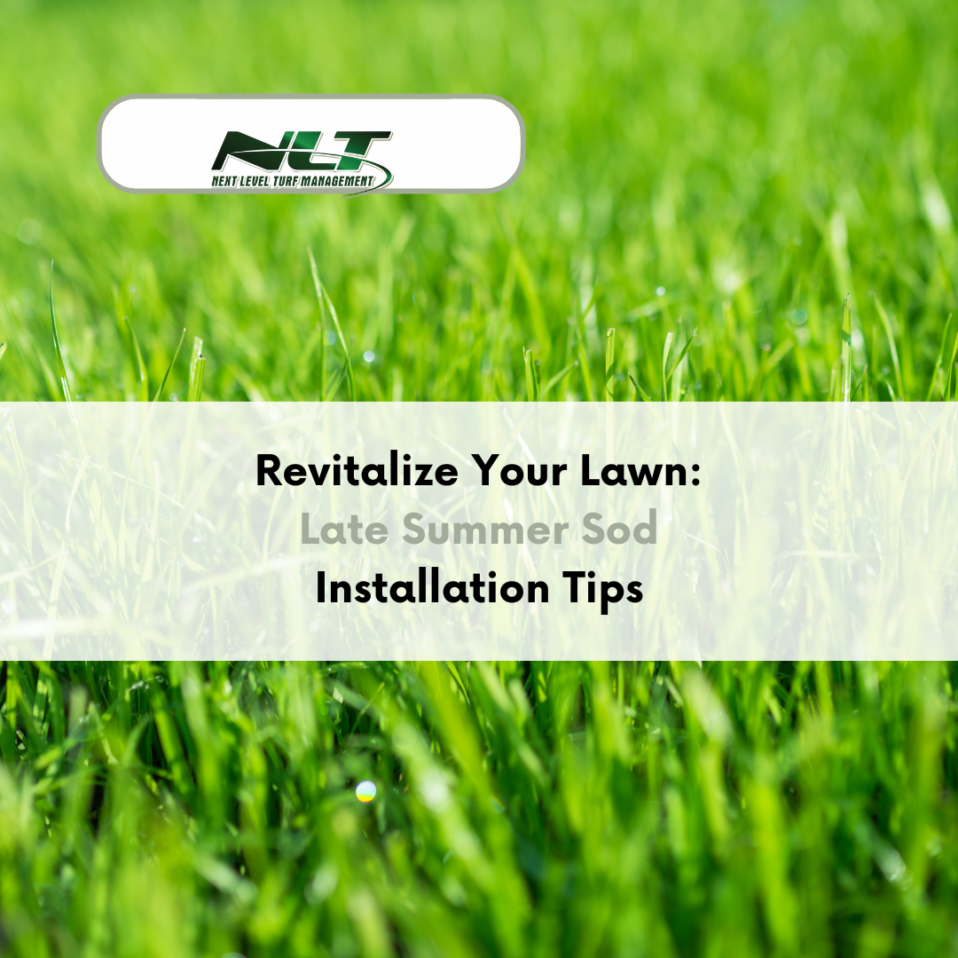In the lush, varied landscapes of Florida, maintaining a weed-free lawn presents a set of unique challenges. The state’s warm, humid climate not only encourages the vigorous growth of turfgrass but also fosters a thriving environment for a wide array of weed species. For homeowners and garden enthusiasts, effective weed management is crucial to ensure that their lawns remain both aesthetically pleasing and functionally robust.
At Next Level Turf, located in the heart of Central Florida, we understand the complexities and challenges of weed control specific to this region. The persistent warmth provides a nearly year-round growing season, not only for the grasses we cherish but also for invasive weeds that can quickly overtake a lawn if not appropriately managed. These challenges are compounded by Florida’s frequent rains and the adaptability of weeds to the local conditions, making traditional weed control measures less effective.
This article aims to shed light on the specific hurdles faced by those managing turf in Florida’s warm climates and to offer insights and expert techniques developed by Next Level Turf for combating these persistent invaders. Whether you are new to lawn care or a seasoned gardener facing persistent weed issues, understanding these challenges is the first step toward achieving a lush, healthy lawn free of unwanted plants. Join us as we delve into effective strategies tailored to keep your turf in excellent condition, reflecting the beauty and vitality of Florida’s natural landscape.
Rapid Weed Growth Due to Warm Temperatures
One of the primary challenges in managing a lawn in Florida is the rapid growth rate of weeds fueled by the state’s warm temperatures. Weeds such as crabgrass, dollarweed, and nutsedge thrive in warm environments and can quickly become problematic. These invasive species are aggressive growers, thriving on the abundant sunlight and moisture that characterize Florida’s climate. Because they grow faster than many types of turfgrass, they can swiftly overtake a lawn if not regularly monitored and managed.
High Humidity and Moisture Levels
Florida’s high humidity and frequent rainfall create an ideal environment for many weed types. Excessive moisture promotes the proliferation of weeds, especially those that thrive in damp conditions, like sedges and mosses. These conditions can be challenging to control because they require different strategies than those needed for drier climates or less aggressive weeds. For example, while some regions might benefit from reduced watering to control weed growth, Florida’s natural humidity and precipitation make such tactics impractical.
Weed Adaptability
The adaptability of weeds in Florida presents another significant challenge for homeowners. Many weeds have developed resistance to common herbicides, making chemical control methods less effective over time. Furthermore, these resilient species are often able to survive in a variety of soil types and pH levels, adapting quickly to changes in their environment. This adaptability means that Florida gardeners must be vigilant and possibly employ a combination of cultural, mechanical, and chemical weed management strategies to keep their lawns healthy.
Integration of Effective Weed Management Practices
Effective weed management in warm Florida climates must integrate various approaches to prevent and mitigate weed invasions. This includes:
Proper Fertilization: A well-fertilized lawn promotes healthy grass growth which naturally resists weed invasion. Over or under-fertilizing can both lead to weed problems. At Next Level Turf, we offer specialized fertilization programs that balance the nutrients essential for healthy turf while minimizing those that may favor weeds.
Regular Maintenance: Regular mowing, done at the correct height, helps maintain turf health and can reduce weed proliferation. Mowing at too low a height can stress the grass and allow sunlight to reach weed seeds lying dormant in the soil, encouraging their growth.
Water Management: Proper irrigation practices are crucial. Too much water can lead to weed growth, while too little can stress turfgrass, making it more susceptible to weed invasion. Implementing an irrigation schedule that provides just enough water based on current weather conditions and soil type is vital.
Use of Pre-emergent Herbicides: Applying pre-emergent herbicides can prevent weed seeds from germinating. This method is most effective when applied in early spring, before the warm weather stimulates growth.
Timing of Weed Control Measures
The timing of weed control actions can significantly influence their effectiveness. In Florida’s climate, where weed growth can be almost year-round, timing becomes even more critical. Pre-emergent herbicides, for example, need to be applied during late winter or early spring to prevent the summer germination of weed seeds. Post-emergent herbicides, on the other hand, should be targeted when weeds are actively growing and most susceptible.
Understanding the life cycle of prevalent weeds in your area can guide you on when to apply these products. For instance, targeting crabgrass with pre-emergent solutions should be done just as the daily temperatures consistently start to reach 55 degrees Fahrenheit in the early spring. This preemptive strike prevents the seeds from ever establishing themselves.
Integrated Pest Management
Integrated Pest Management (IPM) is a sustainable approach to managing weeds by combining biological, cultural, mechanical, and chemical management methods. This strategy is crucial in Florida due to the rapid adaptation of weeds to single-method control strategies.
For example, promoting healthy soil through regular aeration and adding organic matter can enhance turf health and offer less room for weeds to take hold. Mechanical solutions, such as hand pulling weeds, can be effective for immediate removal without the need for chemicals. Chemical treatments, like herbicides, should be used as a last resort and carefully selected based on the specific weeds being targeted.
Implementing IPM not only contributes to the long-term health of your lawn but also reduces the likelihood of weeds developing resistance to standard treatments. It’s a proactive measure that preserves the local ecosystem and maintains the natural beauty of your outdoor spaces.
Cultural Practices for Weed Prevention
Cultural practices play a significant role in preventing weed issues. These include proper mowing, watering, and fertilization techniques, as discussed earlier, but extend into other areas of lawn care as well:
Soil Testing and Amendment: Regularly testing your soil’s pH and nutrient levels can prevent problems before they start. Unbalanced conditions can promote weed growth. Amend your soil based on test results to create an environment that is more conducive to grass than weeds.
Overseeding: In patches where grass is thin, overseeding can help to crowd out weeds before they become established. Using a grass species that is competitive and fast-growing can naturally suppress weeds by denying them light and space.
Clean Gardening Practices: Ensure your gardening tools and lawn equipment are clean and free of weed seeds to prevent spreading them across different parts of your lawn. Similarly, when adding new plants to your garden, check them thoroughly to ensure that you are not introducing weeds.
Understanding Weeds’ Role in the Ecosystem
Despite their reputation, it’s critical to recognize that weeds play a role in the local ecosystem. They often emerge in disturbed soils or wherever the ground has been cleared of natural vegetation. They can protect against soil erosion by covering bare spots quickly, and they often attract beneficial insects that play a role in pest control and pollination. However, when managing a lawn in Florida, the objective is typically to maintain grass dominance for aesthetic and practical reasons. This balance between managing weeds and not harming the beneficial aspects of their presence is delicate but crucial.
Weed Life Cycles and Identification
Identifying the types of weeds in your lawn and understanding their life cycles can immensely improve your weed management strategy. Weeds in Florida primarily fall into two categories based on their life cycles: annuals, which complete their life cycle within one year, and perennials, which continue to grow for multiple years.
Annual weeds, like crabgrass, germinate, grow, flower, set seed, and die within a single year or growing season. Understanding when these weeds typically germinate can guide the timing of pre-emergent herbicide applications. On the other hand, perennial weeds, such as dandelion, can live for several years and often regenerate, if not completely removed, because they can regrow from roots as well as seeds.
Advanced Techniques in Modern Weed Control
Modern advancements in weed control offer a variety of techniques that can be particularly effective in Florida’s climates:
Targeted Herbicide Application: Innovations in herbicidal treatment allow for more targeted applications. This minimizes the amount of chemicals used and focuses on only the areas that truly need treatment, preserving beneficial flora and reducing environmental impact.
Biological Control: Using natural predators or diseases to control weeds offers an environmentally friendly option, though it’s more commonly used in agricultural settings. Research into biological control for residential lawn care is ongoing and holds promise for ecologically sustainable practices.
Heat Treatment: Thermal weed control, using heat to kill weeds, is an emerging method that avoids chemical use altogether. This can be particularly effective for spot treatments and is safe for use around pets and children, making it an increasingly popular choice.
Each advanced technique requires specific knowledge and equipment but can be part of an effective integrated weed management strategy, especially in a specialized environment such as Florida’s.
Regular Monitoring and Maintenance
Consistent monitoring and ongoing maintenance are crucial to managing weeds effectively. Regularly walk through your lawn to inspect for signs of new weed infestations. Early detection allows for easier removal and less aggressive methods of control.
Maintenance activities such as aeration help to improve soil health and reduce the likelihood of weed settlement. Dethatching, removing a layer of dead turfgrass tissue, can also help prevent weed seeds from finding a home in your lawn. These practices, combined with the previously mentioned techniques, form a robust defense against weeds tailored to Florida’s unique environmental conditions.
Keeping a record, such as a garden diary, of what types of weeds are found and how they respond to different treatments can also be incredibly beneficial. Such records can guide future decisions and adjustments in your lawn care regimen, creating a customized strategy that evolves with your landscape.
Next Level Turf’s comprehensive fertilization and weed control services offer tailored solutions that consider all these variables. By utilizing the right tools, techniques, and timing based on your specific lawn conditions and local climate, Next Level Turf helps ensure that your lawn remains healthy and vibrant while keeping weed invasions to a minimum.
Understanding and implementing these detailed, proactive strategies can transform the challenge of managing weeds in Florida’s warm climate from a daunting task to an achievable and satisfying part of home landscaping. With ongoing education, proper tools, and expert support from professionals like Next Level Turf, your lawn can thrive as a lush, inviting space free from unruly weeds.
Achieve a Lush, Weed-Free Lawn with Next Level Turf
Successfully managing weeds in Florida’s warm and humid climate can indeed be a formidable task. Yet, with the right strategies, support, and understanding, it’s entirely possible to cultivate a lush, thriving, and virtually weed-free lawn. Remember, the key is not just to address weeds as they appear but to prevent their emergence through proactive, integrated lawn care practices tailored to your unique landscape and local conditions.
At Next Level Turf, we specialize in transforming and maintaining healthy lawns across Central Florida. By integrating advanced weed management techniques with routine care, we help ensure that your outdoor space remains beautiful, functional, and enjoyable year-round. Whether you need initial sod installation, regular fertilization, or expert weed control services, Next Level Turf is your go-to resource for all things turf management.
Don’t let weeds overtake the beauty and health of your lawn. Reach out to Next Level Turf today, and let us help you take control of your outdoor space with our professional, effective lawn care solutions. Schedule a consultation to learn more about how we can assist you in achieving the perfect lawn you’ve always dreamed of. Visit us now at Next Level Turf for more information and to get started on your journey to a pristine, weed-free landscape. Your ideal lawn awaits, and we are here to make it happen!







Post a comment